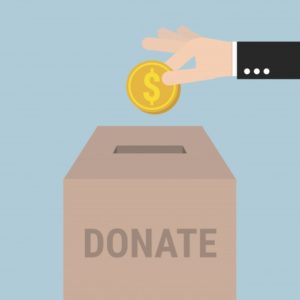COVID-19: Be aware of scams!
“Recognize. Reject. Report.”
Sadly, there are already many scams related to COVID-19 offering for tests, household services, and protective items like masks and clothing. Below are some examples. For more list of COVID-19 scams, visit the Canadian Anti-Fraud Centre or call 1-888-495-8501.
(1) Types of COVID-19 Scams
1. Grocery Help Scam
Toronto Community Housing (TCH) tenants are reporting calls from people offering to buy groceries for tenants. As conversations progress, these callers are asking for credit card or banking information. TCH will never ask for your credit card or banking information.
*There is an actual legitimate grocery help run by UHN (Friendly Neighbour Hotline) for TCH tenants.
2. COVID-19 Test Scam (text/email)
“I got an email from a company offering a fast COVID-19 test within 48 hours. I signed the online contract and paid with my credit card. I did not receive the test.”
Contact your credit card company immediately and tell them about the scam. They may be able to reverse the charges on your credit card. Contact the company directly: to talk about your rights and ask for refunds. See the rules online sellers must follow, from here.
3. ”I’m your family and need money” Scam
“I’ve got a call from someone claims s/he is my grandchild in the hospital with COVID-19 and needs money. I don’t know how I should respond.”
If you actually have a grandchild, talk to their parents and see if that is the true story. If you are talking to this “unknown person” over the phone right now, ask their date of birth, parents’ names, hospital they are calling from, etc.; it’s probably a scam if they can’t answer correctly to these questions.
If you decide to help this person, offer to pay the bills directly but only if they can provide account numbers or the names of who they need to pay (e.g. landlord, utilities). If they can’t provide this information and insist on an e-transfer or some sort, it’s probably a scam.
4. Donation scam in exchange of a box of masks
“Someone I don’t know called me asking for a donation in exchange for a box of masks that will help protect me from COVID-19. I don’t know if this is legitimate.”
If you are interested in this type of request, ask a lot of questions first! For example;
- The organization’s charitable number
- The address and phone number of their local office
- Other ways to donate than over the phone
Check the organization website to see if the information is correct, and contact the business office of the organization to make sure that the caller is legitimate. Always offer to make your donation directly to their office instead of responding to the caller’s request.
5. New Financial Benefit Offer – DO NOT CLICK or RESPOND
“I got a text message (below) that I’ve received the relief fund from the new emergency response benefit. It tells me to see the link on it.”

Again, DO NOT CLICK or RESPOND! Check the government’s website to see if this is legitimate.
6. Door-to-door sales Scam
“I bought a duct clearing service for $100 from a door-to-door salesperson who said it would protect me from COVID-19. I’m having second thoughts.”
Consumer Protection Act (Ontario) says:
- Cooling off (cancelling) period for door-to-door sales is 10 days after you receive a copy of the signed agreement of total charges of $50 and over (before tax).
- Since Mar 1, 2018, duct cleaning services over $50 (before tax) can’t be sold door-to-door in Ontario.
This means, the contract of above example is not legal. You have the right to get your money back from the seller – up to one year to request.
- You should always request in a written letter to the seller.
- the seller has 15 days to return your money.
- If not refunded, send a written complaint to the Ministry of Government and Consumer Services that will try to get your money back from the seller.
(2) COVID-19 Cyber Fraud
CBC reported on May 1 that Canadians have lost more than $1.2 million to COVID-19 scams. Here is some summary. **Go to the link on top for the full original CBC article.
Types of Cyber Scams
- Using the pandemic as cover to infect computers with malware
- Luring people to a scamming website and to submit personal information
Any direct communication Canadians receive about applying for the CERB is a scam. (Etienne Biram, CRA spokesperson)
Canadian Centre for Cyber Security reported that they took down 2000 websites that were trying to defraud Canadians, including some that pretended to belong to government organizations like the PHAC, CRA and CBSA.
Why now?
Scammers see now is the best time where people have “heightened sense of anxiety, or fear … the isolation that people are in right now.”
Essentially, frauds are designed to get people to not think straight. So if […] people are already in that state … they may not be thinking straight. So it’s prime time for scammers and fraudsters to solicit for scams. (Jeff Thompson, Canadian Anti-Fraud Centre)
“Scammers often target small gateway telecom providers who pass the call or text on to larger providers. [… U.S.] Federal Communications Commission and Federal Trade Commission issued a notice to those gateway providers regarding international robocalls and robotexts.”
“Canadian telecom companies and the association that represents them, meanwhile, say they take the problem seriously but offered few examples of concrete action. […] Canadian should be vigilant about scams and report them to the Canadian Anti-Fraud Centre.”
(3) In Sum…【What to watch out】
- Always be suspicious about of anyone that contacts you and asks for your address, SIN, money, bank account, or credit card numbers.
- Best place to find a legitimate governmental services and financial support information is the government website itself.
- Any scam: Report it to your local police, the Canadian Anti-Fraud Centre, and the Ontario Ministry of Government and Consumer Services.
- If you send any letters or emails to the seller, always keep a copy for your records.
Sources:
- Community Legal Education Ontario. (Apr 15, 2020). Step to Justice: COVID-19 Debt and Consumer Rights.
- Office of Hon. Jim Karygiannis, Councillor Ward 22 Scarborough-Agincourt. (Apr 13, 2020). COVID-19 Updates – April 11 2020: Scam Alert.
- Katawazi, M. (Mar 13, 2020). GTA residents need to be aware of COVID-19 scams, police say. CTV Mews.
- Canadian Anti-Fraud Centre. (Apr 15, 2020). Recent scams and fraud.
- CBC News. (May 1, 2020). Canadians have lost more than $1.2 million to COVID-19 scams.
**Go back to the COVID-19:


